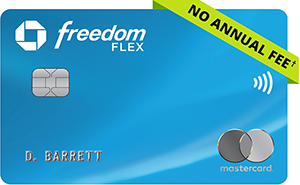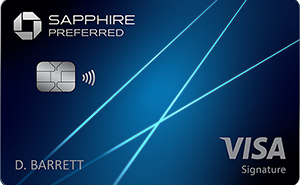Many people don’t realize that they qualify for a Small Business Credit Card and ultimately end up leaving valuable Points, Miles & Cashback on the table. This might be due to being unfamiliar with options in the business card world or perhaps not understanding exactly what constitutes a business in the eyes of a credit card lender. It is my hope that this guide can help shed some light on the lesser-known world of business credit cards and inspire our readers to consider taking advantage of amazing opportunities that are available!
What is a Small Business Credit Card?
Small Business Credit Cards come in many different forms across the majority of the banks and lenders out there. Think of it as an alter-ego option to the more familiar personal credit card. For example, you might know that there are three personal Southwest Credit Card options. However, most people are unaware that there are two additional Business Southwest Credit Cards that come with higher opening offers. You can find all 5 offers here: Southwest Credit Card Options

Combining a Southwest Personal and Business Card Signup Bonus is one of our ALL-TIME favorite travel strategies that can ultimately lead to earning the Southwest Companion Pass, Buy-One-Get-One-Free Flights.
Southwest Rapid Rewards® Premier Credit Card
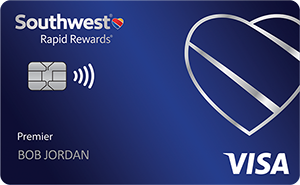
Southwest Rapid Rewards® Premier Credit Card
Which Types of Businesses Qualify for a Credit Card?
There are Five Types of businesses that can qualify for a small business credit card.
- Corporation
- Partnership
- Non-Profit
- Limited Liability Company (LLC)
- Sole-Proprietorship (What most people use to qualify!)
All five of the business models above will qualify in order to open a small business credit card. For the first four, you would just have to input the information required about the business and the Employer Identification Number (EIN). That should be a pretty straightforward process for any of the first four business models. Check out our basic guide to completing a business credit card application for a step-by-step tutorial.
Check out all of our Small Business Credit Cards Here.
What about Sole Proprietorships?
This is where most people will be able to qualify for a Small Business Credit Card. A Sole-proprietorship is a one-person business that has not registered with a state. It is the default business type for income-tax purposes. The income earned and any deductions taken are processed through a schedule C form during tax season.
Who falls under a Sole Proprietorship?
Sole-proprietorships can include people who
- Make Things
- Teach Classes
- Provide Services
- Sell Products
As you can see from the examples above, Sole Proprietorship Businesses are WIDE OPEN!
What about Independent Contractors or 1099 Employees?
An Independent Contractor is an individual who is working for someone or a business but is not considered a regular employee. Most side-hustle jobs consider the people who work for them as Independent Contractors, think UBER, and LYFT. Often referred to as a “1099 Job”; due to the fact that the money earned has not been pre-taxed for social security and medicare. Similar to the Sole-Proprietorship; an Independent Contractor will also file a schedule C form during tax season to account for income earned and any possible deductions.
Chase Ink Business Cash® Credit Card
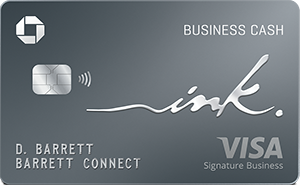
Chase Ink Business Cash® Credit Card
The overlap between Sole-Proprietorship and Independent Contractor
These two titles are often used interchangeably due to how similar they are. If I were to earn money from selling baked goods out of my house, I’d be automatically considered a Sole-Proprietor. Let’s say during that same year, a restaurant needed a special cake made for an event they were hosting. If I filled that contract, I could be paid through a 1099 since I am not a regular employee of that business. At the end of the year, both of those incomes are combined for tax purposes under the same filing. The only difference between the two titles is how the person is paid. Both Sole-proprietorships and Independent Contractors are not required to register with the state.
What does this mean for opening a small business credit card?
Both Independent Contractors and Sole Proprietors can open a Small Business Credit Card
Given that Independent Contractors can consider themselves Sole Proprietors under the umbrella of business types; any person that is paid through 1099 is eligible for a business credit card. You really should consider opening one due to the benefits for business owners and to keep personal and business expenses separate.
For example, an Uber or Lyft driver can apply for the American Express® Business Gold Card and you will earn 4X Membership Rewards®points on the 2 categories where your business spends the most in each billing cycle from 6 categories:
- Purchases at US media providers for advertising in select media (online, TV, radio)
- U.S. purchases made from electronic goods retailers and software & cloud system providers
- U.S. purchases at restaurants, including takeout and delivery
- U.S. purchases at gas stations
- Transit purchases including trains, taxicabs, rideshare services, ferries, tolls, parking, buses, and subways
- Monthly wireless telephone service charges made directly from a wireless telephone service provider in the U.S.
You will earn 4X points on the first $150,000 in combined purchases from these categories each calendar year (then 1X thereafter).Rates & Fees. Only the top 2 categories from this list each billing cycle will count towards the $150,000 cap.
Additionally, an entrepreneur selling a product can earn 3X Points when purchasing advertising through social media and online search sites when using the Chase Ink Business Preferred Credit Card.
What kinds of benefits are included with Small Business Credit Cards?
Small Business credit card benefits often include bonus categories to earn additional points, miles, & cashback when purchasing office supplies, advertising, gas, travel, and other categories.
Some other possible benefits of Small Business Credit Cards Include:
- Business Related Discounts and Credits
- Trip Interruption and Cancelation Insurance
- Trip Delay Insurance
- Baggage Insurance
- Rental Car Collision Damage Waiver
- Airport Lounge Access
- Inflight Internet Passes
- WeWork shared workspace access
- Cell Phone Insurance
- And More!
Ink Business Preferred® Credit Card
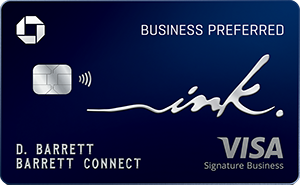
Ink Business Preferred® Credit Card
Basic Recap
As you’ve read above, you don’t have to be running a Fortune 500 company in order to qualify for a Small Business Credit Card. The benefits included with Small Business Credit Cards can be huge and certainly can provide fantastic value!
If you’re interested in opening a Small Business Credit Card, and found value in this article, we appreciate it if you use our affiliate links. You can find our Top Credit Card links here.
You can find this Month’s Top Credit Cards HERE
For rates and fees for American Express cards mentioned in this post, please see the following links: American Express® Business Gold Card (See Rates & Fees; terms apply)

